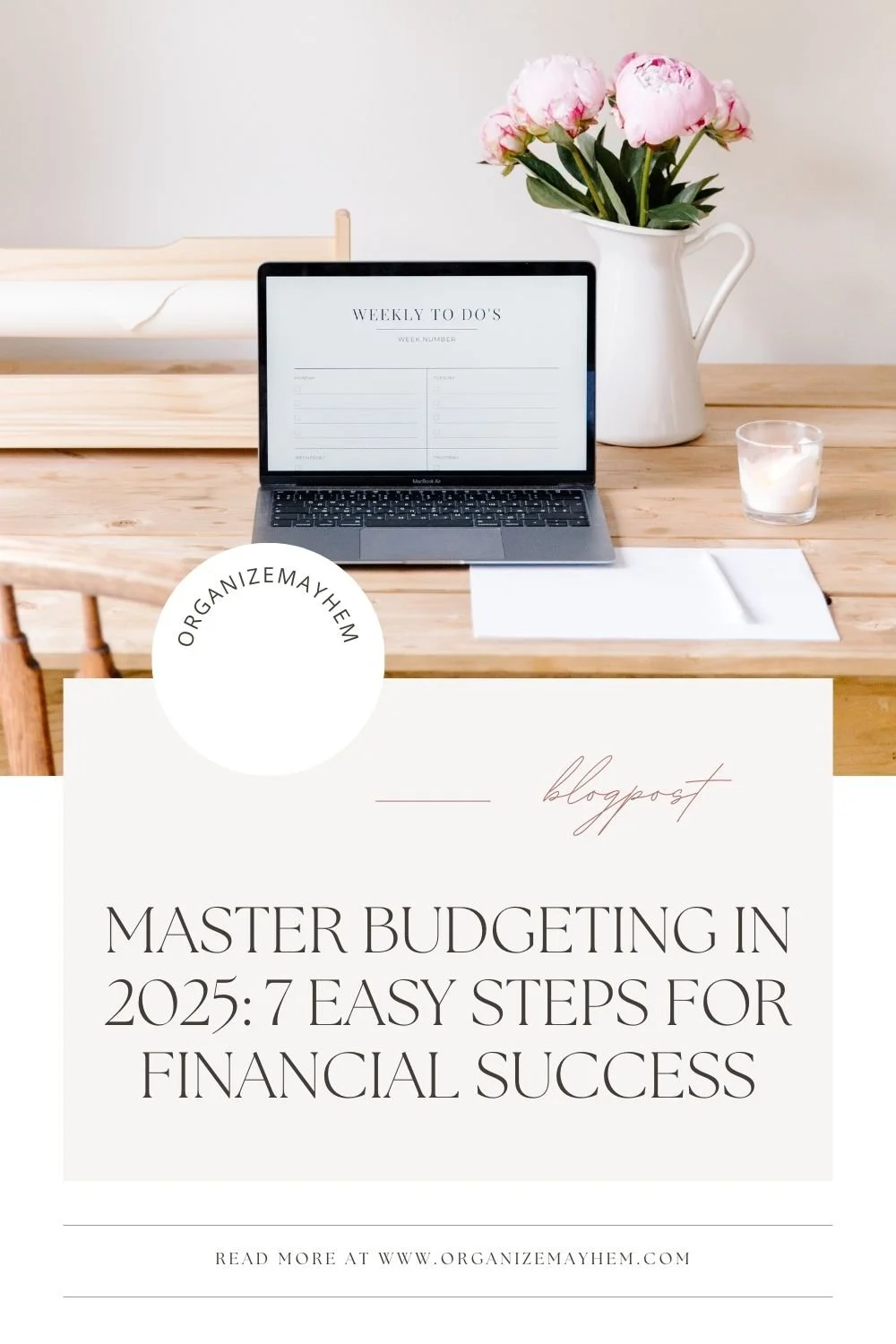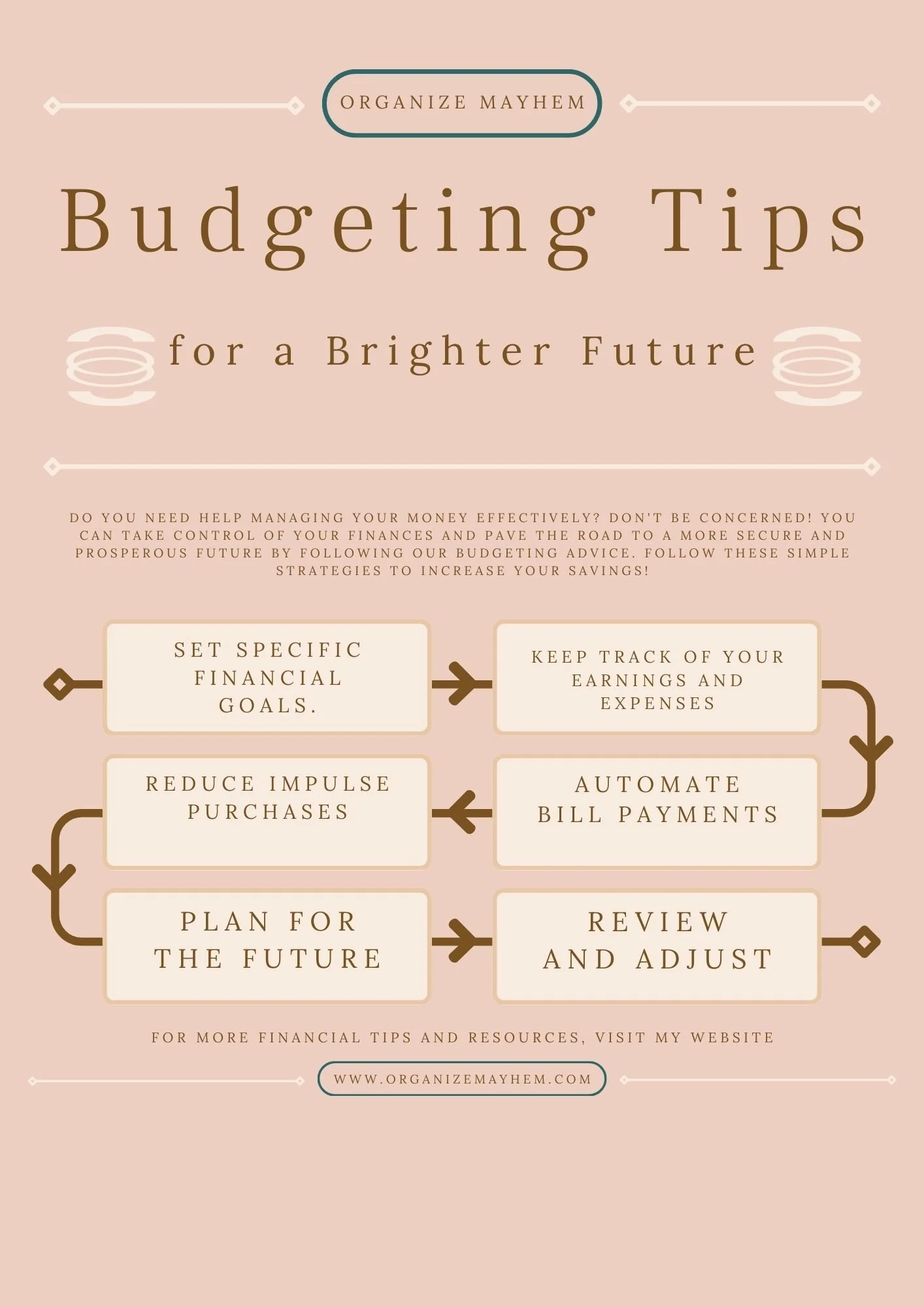7 Proven Steps to Master Budgeting in 2025 for Financial Freedom
Budgeting isn’t just about cutting costs; it’s about creating the freedom to spend on what truly matters. I've been working my way to FIRE (Financial Independence, Retire Early) so I can focus on my passion for giving back and supporting businesses in streamlining their operations, all without worrying about how to support myself. Whether you’re new to managing your finances or want a fresh start for 2025, these tips will help you take control of your money with confidence.
1. Set Clear Goals
What’s motivating you to budget? Maybe it’s saving for your first home, starting a business, or taking that dream vacation. Write down your financial goals and assign a timeline. When you’re clear about what you’re working toward, it’s easier to stay disciplined.
Pro Tip: Use a vision board or a budgeting journal to keep your goals front and center.
2. Track Every Dollar
You can’t manage what you don’t measure. Start by tracking all your expenses for two months without making any changes. Then, in the third month, review your expenses, set a budget limit, and identify areas where you can reduce spending to add more to your savings.
Tools to Try:
Apps: PocketGuard, YNAB (You Need A Budget), EveryDollar or Tiller
Planners: Grab a budgeting planner to manually track your spending and income. (Check out these cute and functional ones on Amazon!)
3. Embrace the 50/30/20 Rule
This simple framework allocates 50% of your income to needs, 30% to wants, and 20% to savings or debt repayment. Think of it as a starting point, not a rulebook. Life happens—some months you might need to put a little more toward needs or savings, and that’s okay. For me, this framework has been super helpful in balancing what’s essential with what brings joy. It’s all about making the numbers work for you. If brunch with friends makes your soul happy, keep it in the budget, but maybe find a way to save on groceries or cut back on impulse buys to make room. Adjust it as your goals and life evolve.
Example:
50% Needs: Rent, groceries, utilities
30% Wants: Dining out, Netflix, hobbies
20% Savings/Debt: Emergency fund, retirement, or student loans
4. Automate Your Savings
Make saving easy by setting up automatic transfers to your savings account—set it and forget it! Even $5 or $10 a week can build up faster than you think. When I first started, I was surprised at how those small, consistent transfers added up over a few months. Aim to save at least 3-6 months of living expenses for emergencies. Don’t stress if that feels overwhelming at first—start small, celebrate every milestone, and remember, it’s about progress, not perfection.
Bonus Tip: Open a high-yield savings account to earn more on your savings.
5. Cut Costs Without Sacrificing Joy
Budgeting doesn’t mean giving up fun. Find ways to cut costs while still enjoying life:
DIY projects instead of buying new decor
Free events in your community
Discount apps like Groupon for finding deals and promo codes on your everyday purchases.
6. Learn to Say No
It’s okay to skip brunch or pass on an expensive gift if it doesn’t align with your budget. Practicing mindful spending helps you focus on what truly brings value to your life.
7. Celebrate Milestones
Hit a savings goal? Paid off a debt? Celebrate your progress! Treating yourself reinforces positive habits and keeps you motivated.
Ready to Start?
Budgeting doesn’t have to be overwhelming. Start small, stay consistent, and remember that every little effort gets you closer to financial freedom. Make 2025 the year you take control of your finances and create the life you deserve.
Grab your favorite budgeting tools and let’s make magic happen! For more tips and resources, follow me. Let’s thrive financially together.
FAQs About Budgeting
1. What is budgeting, and why is it important? Budgeting is the process of creating a plan to spend your money wisely. It’s important because it helps you achieve financial goals, reduce stress, and gain control over your finances.
2. How do I start budgeting if I’ve never done it before? Start by tracking your income and expenses for two months. Then, create a basic budget using the 50/30/20 rule to allocate your money.
3. What are some common mistakes people make when budgeting?
Setting unrealistic goals
Forgetting to track small expenses
Not adjusting the budget when life changes

